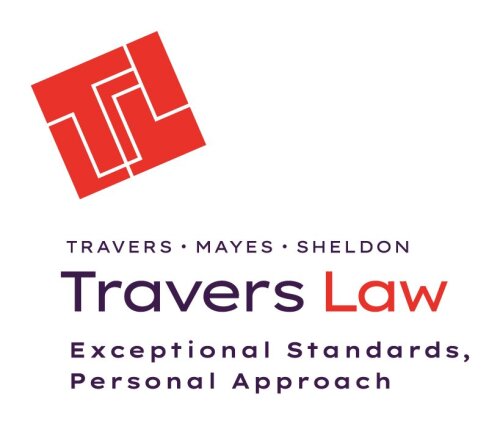Best Elder Abuse Law Lawyers in Waterloo
Share your needs with us, get contacted by law firms.
Free. Takes 2 min.
List of the best lawyers in Waterloo, Canada
About Elder Abuse Law in Waterloo, Canada
Elder abuse law in Waterloo, Canada addresses the protection and legal rights of older adults who may be victims of abuse, neglect, or exploitation. Elder abuse can take many forms, including physical, emotional, financial, and psychological maltreatment. The law aims to ensure that seniors can live free from harm, securing their dignity and safety. In Waterloo, these cases are governed primarily by provincial legislation (Ontario), reinforced by federal and municipal policies. Local authorities, healthcare professionals, and legal experts work collaboratively to identify, prevent, and respond to elder abuse.
Why You May Need a Lawyer
Legal assistance can be crucial in elder abuse situations. Common reasons you may need a lawyer include:
- Suspecting or witnessing abuse of an elderly person and needing to understand your legal reporting obligations.
- Seeking protection for yourself or a loved one through restraining orders or guardianship applications.
- Dealing with financial exploitation, such as unauthorized access to bank accounts or modifications to wills or powers of attorney under suspicious circumstances.
- Addressing issues of neglect in long-term care or retirement residences.
- Navigating disputes among family members regarding guardianship or care responsibilities.
- Wanting to develop or update power of attorney or personal care documentation to prevent future abuse.
A lawyer specialized in elder abuse law can clarify your rights, help collect evidence, represent you in court, and support you through complex legal and civil processes.
Local Laws Overview
In Waterloo, elder abuse law is governed by a combination of federal and Ontario provincial statutes, with strong emphasis on the following:
- Criminal Code of Canada: Addresses criminal acts such as theft, assault, fraud, and intimidation against any person, including elders.
- Ontario’s Long-Term Care Homes Act, 2007: Sets standards for the care and protection of residents in long-term care homes, mandating reporting of abuse or neglect.
- Substitute Decisions Act, 1992: Provides legal authority for substitute decision-making, including powers of attorney for property and personal care; outlines duties and restrictions to prevent abuse.
- Adult Protective Services: Supports vulnerable adults living in the community at risk of harm or abuse.
- Mandatory Reporting: Healthcare providers, caregivers, and some professionals are required by law to report suspected abuse or neglect of elders in care homes or facilities.
Waterloo agencies and local law enforcement collaborate with provincial bodies to investigate and act upon elder abuse complaints.
Frequently Asked Questions
What qualifies as elder abuse in Waterloo, Canada?
Elder abuse includes physical, emotional, financial, or sexual abuse, neglect, and exploitation. It can occur in homes, institutional settings, or the community, and is committed by anyone in a position of trust or authority.
What are the warning signs of elder abuse?
Warning signs may include unexplained injuries, sudden changes in financial status, withdrawal or depression, poor hygiene, unusual fearfulness around caregivers, and missing personal possessions.
Is elder abuse a crime in Waterloo, Canada?
Yes, many forms of elder abuse (such as assault, theft, or fraud) are criminal offenses under the Criminal Code of Canada and are prosecuted accordingly.
How do I report suspected elder abuse in Waterloo?
You can contact local police, your local long-term care home, or the Waterloo office of the Ontario Ministry of Health and Long-Term Care. Reporting is confidential and can protect vulnerable elders.
Can I be sued for reporting suspected elder abuse?
Ontario law protects individuals who report suspected abuse in good faith, especially professionals with mandatory reporting duties. False or malicious reporting, however, is not protected.
What legal options are available for a victim of elder abuse?
Options include obtaining restraining orders, seeking guardianship changes, pursuing civil actions for damages, and, if a crime has occurred, filing criminal charges through the police.
Who can help me investigate a case of elder abuse?
Local police, the Public Guardian and Trustee, Adult Protective Services, and experienced elder law lawyers can investigate and intervene in suspected cases.
How can a lawyer help in elder abuse cases?
A lawyer can guide you on your legal options, help apply for protective measures, represent you in court, and ensure all necessary reports are filed for proper investigation and response.
What rights do elders have in institutions?
Elders in long-term care and similar institutions have the right to be safe, respected, and free from abuse and neglect. Institutions are legally required to uphold these rights under Ontario law.
Can power of attorney be misused, and what can be done?
Yes, someone with power of attorney can misuse their authority for financial gain or neglect. Suspected misuse should be reported to a lawyer, the Public Guardian and Trustee, and the authorities, who can investigate and intervene.
Additional Resources
For those seeking help or information on elder abuse law, these local and provincial organizations are valuable resources:
- Waterloo Region Police Services: For immediate reporting of crimes or abuse.
- Ontario Seniors’ Secretariat: Provides information and advocacy for seniors’ rights.
- Public Guardian and Trustee of Ontario: Assists in cases of financial abuse or incapacity.
- Community Legal Clinics: Offer free or low-cost legal support for vulnerable seniors.
- Adult Protective Services: Supports community-dwelling adults with developmental disabilities at risk of abuse.
- Long-Term Care ACTION Line: For complaints and concerns about care within long-term care homes.
Next Steps
If you or someone you care for may be experiencing elder abuse in Waterloo, consider the following steps:
- Document the Details: Write down what you have seen or experienced, including times, dates, and names.
- Seek Help: Contact emergency services if the situation is dangerous. Notify local authorities or relevant agencies for non-emergencies.
- Consult a Lawyer: Reach out to a local elder law specialist or community legal clinic for personalized legal advice.
- Protective Measures: Ask about restraining orders, guardianship changes, or financial audits if you suspect abuse.
- Support and Advocacy: Access support groups or counseling services for additional emotional or social help.
Addressing elder abuse is essential for community well-being. Expert legal guidance can help you understand your options and protect the vulnerable elderly individuals in your life.
Lawzana helps you find the best lawyers and law firms in Waterloo through a curated and pre-screened list of qualified legal professionals. Our platform offers rankings and detailed profiles of attorneys and law firms, allowing you to compare based on practice areas, including Elder Abuse Law, experience, and client feedback.
Each profile includes a description of the firm's areas of practice, client reviews, team members and partners, year of establishment, spoken languages, office locations, contact information, social media presence, and any published articles or resources. Most firms on our platform speak English and are experienced in both local and international legal matters.
Get a quote from top-rated law firms in Waterloo, Canada — quickly, securely, and without unnecessary hassle.
Disclaimer:
The information provided on this page is for general informational purposes only and does not constitute legal advice. While we strive to ensure the accuracy and relevance of the content, legal information may change over time, and interpretations of the law can vary. You should always consult with a qualified legal professional for advice specific to your situation.
We disclaim all liability for actions taken or not taken based on the content of this page. If you believe any information is incorrect or outdated, please contact us, and we will review and update it where appropriate.










